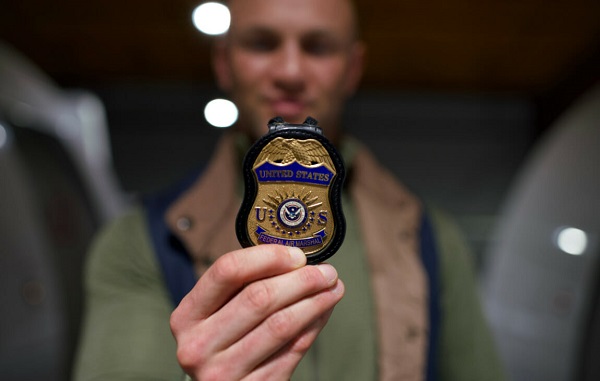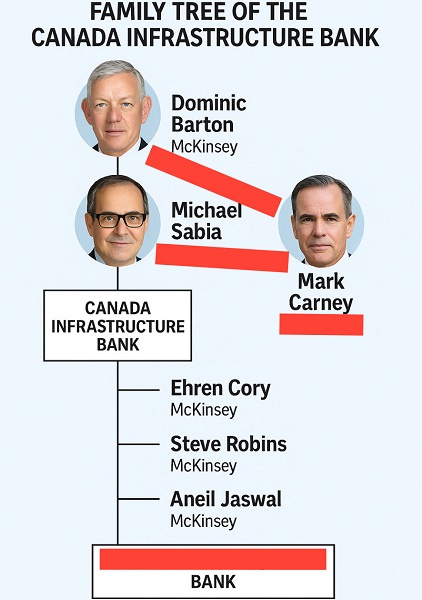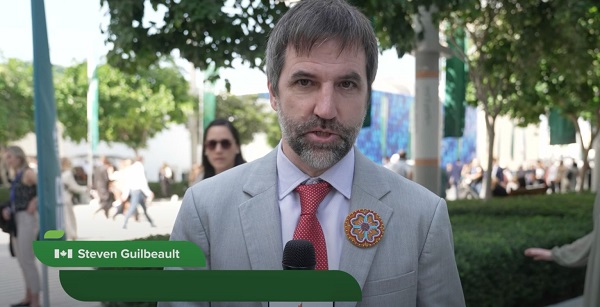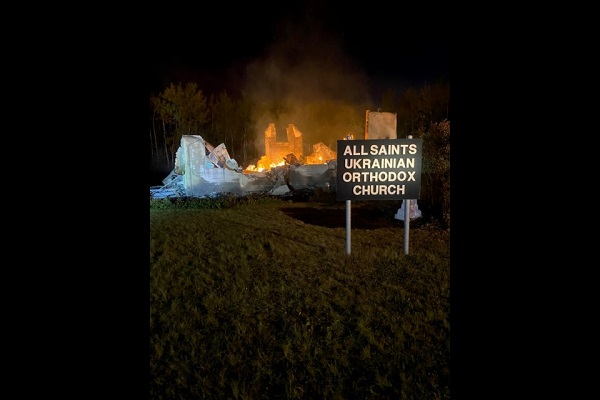espionage
Biden expands government’s power to spy on Americans without a warrant

From LifeSiteNews
Legal experts have pointed out that under an updated version of the Foreign Intelligence Surveillance Act (FISA), delivery personnel, cleaning contractors, and utility providers could all be forced to surveil Americans.
U.S. President Joe Biden has quietly signed legislation reauthorizing and expanding the government’s ability to spy on American communications without a warrant.
On April 20, Biden signed the reauthorization of Section 702 of the Foreign Intelligence Surveillance Act (FISA) that allows the government to compel a broader range of businesses to collect the communications of U.S. citizens when they are in contact with foreigners, according to legal experts.
The newly passed, updated version of Section 702 accomplishes this by expanding the definition of “electronic communication service providers” who can receive FISA directives to tap communications by dropping the qualifier “communication” from electronic service providers. The new amendment, therefore, makes access merely to equipment on which communications are carried or stored enough to legally surveil Americans.
While the amendment lists types of businesses that cannot be considered Electronic Communication Service Providers (ECSPs), including public accommodations, dwellings, and restaurants, ZwillGenBlog points out that the law still allows the government to “compel the assistance of a wide range of additional entities and persons in conducting surveillance under FISA 702.”
“The breadth of the new definition is obvious from the fact that the drafters felt compelled to exclude such ordinary places such as senior centers, hotels, and coffee shops. But for these specific exceptions, the scope of the new definition would cover them — and scores of businesses that did not receive a specific exemption remain within its purview,” ZwillGenBlog explained.
The legal experts noted that among the entities that could be forced to surveil Americans under the amendment are “the owners and operators of facilities that house equipment used to store or carry data, such as data centers and buildings owned by commercial landlords,” as well as others who can access such equipment, including “delivery personnel, cleaning contractors, and utility providers.”
ZwillGenBlog also pointed out that “any U.S. business could have its communications” — if involving a foreigner — “tapped by a landlord with access to office wiring, or the data centers where their computers reside.”
Democratic U.S. Sen. Dick Durbin of Illinois had tried and failed to pass an amendment that would require government officials to obtain a warrant before spying on American communications, according to the Associated Press (AP).
“If the government wants to spy on my private communications or the private communications of any American, they should be required to get approval from a judge, just as our Founding Fathers intended in writing the Constitution,” Durbin said.
Critics of the new amendment warn that over the past year alone the FBI has unconstitutionally spied on Americans, including Republican U.S. Rep. Darin Lahood of Illinois, who serves on the Permanent Select Committee on Intelligence and the Committee on the Chinese Communist Party, as well as Americans present at or near the Capitol on January 6, 2021.
Under Section 702 of the Foreign Intelligence Surveillance Act (FISA), passed in 2008, the National Security Agency (NSA), operating inside the United States, is authorized to collect communications of foreigners overseas for foreign intelligence purposes without a warrant “because courts have held that foreigners have no Fourth Amendment rights,” according to Elizabeth Goitein.
“Although ostensibly targeted at foreigners, Section 702 surveillance inevitably sweeps in massive amounts of Americans’ communications,” Goitein further noted.
“Recognizing the impact on Americans’ privacy, Congress required the NSA to ‘minimize’ the sharing, retention, and use of this ‘incidentally’ collected U.S. person data. But the government and the FISA Court have embraced an interpretation of ‘minimize’ that is remarkably … maximal.”
“The NSA shares raw data with multiple other agencies — including the FBI and the CIA — and all of them retain the data for a functional minimum of five years. Moreover, the FBI routinely combs through it looking for Americans’ communications to use in purely domestic cases, even in situations where the FBI lacks a factual predicate to open a full investigation,” Goitein continued.
There are other means by which the U.S. government can spy on Americans. In 2022, Biden issued an executive order (EO) that allows the government to surveil Americans for broadly defined reasons including understanding “public health risks,” “political instability,” and the “threat” of climate change.
The EO was ostensibly written to “enhanc[e] safeguards” for “United States Signals Intelligence Activities,” which is intelligence gathering by the interception of signals, including communications, such as through cell phones, or those not used in communication. An accompanying fact sheet explains that the EO is meant to help “implement the U.S. commitments under the European Union-U.S. Data Privacy Framework (EU-U.S. DPF)” in an effort to “restore trust and stability” to transatlantic data flows.
Alongside permitting spying for the purposes of sizing up the capabilities of foreign entities, the EO permits signals intelligence collection for “understanding or assessing transnational threats that impact global security, including climate and other ecological change, public health risks, humanitarian threats, political instability, and geographic rivalry.”
The document’s lack of elaboration on such so-called “transnational threats” raises the question of the true scope of activity now officially subject to spying by the U.S. government, which is potentially massive.
espionage
North Americans are becoming numb to surveillance.

Eliminating Quiet Skies is hopefully just a start. The government spent $200 million a year following up to 50 people a day for a program that in its history never once led to an arrest, or thwarted a single criminal act.
Last year, former Hawaii Congresswoman and Presidential Candidate Tulsi Gabbard was placed in a surveillance program called Quiet Skies by the Transportation and Security Administration. Across eight flights she was subject to intrusive searches, followed by bomb-sniffing dogs, and trailed by three Federal Air Marshals per flight, who if they were following procedure were attempting to listen to her conversations, following her to airport exits to see who if anyone met her, and even recording how often and at what times she went to the bathroom.
To cover the story I contacted the TSA. They no-commented the main question – “TSA does not confirm or deny whether any individual has matched to a risk-based rule,” they said – but they added, as if in mitigation: ”Simply matching to a risk-based rule does not constitute derogatory information about an individual.”
In other words: “We can’t say if Ms. Gabbard was in the program, but if she was, don’t draw conclusions, because we do this even to innocent people.”
Before Quiet Skies was discontinued by this administration, it was a symbol of the steep decline of federal enforcement since 9/11. The government spent $200 million a year following up to 50 people a day for a program that in its history never once led to an arrest, or thwarted a single criminal act. Despite its demonstrated inutility and grave civil liberties concerns it was re-funded year after year because this is what our government does now: it gathers information on its own citizens as an end in itself.
In a week in which the question of whether federal security officials always tell the truth to Congress is back in the news, it’s worth noting that it’s been 13 years since then-National Intelligence Director James Clapper answered, “No, sir,” and “Not wittingly” when Senator Ron Wyden of Oregon asked, “Does the NSA collect any type of data at all on millions, or hundreds of millions of Americans?”
Clapper later explained that he’d responded in the “least most untruthful manner.”
That episode solidified the principle that if you lie about mass surveillance programs in America, even under oath, you not only get to keep your job, you get to be hired as a professional truth-teller after retirement, a National Security Analyst for CNN. If you try to tell the truth about the same issues, your options are prison or leaving the country forever.
In those 13 years since, Americans became numb to surveillance. It was once a core principle that government couldn’t or shouldn’t spy on citizens without predication. Now much of the country accepts as inevitable the idea that every move we make is being recorded and analyzed.
We know emails and phone conversations are being collected passively, via programs of dubious legality, and the mountains of data we leave behind as our lives move online– from geolocations of cell phones to GPS tracking to travel, banking, and medical records – are increasingly fodder for overt and covert acquisition by federal analysts. As Google admitted last week, federal officials partnered with companies not just to monitor speech but to suppress it on a grand scale.
A lot of these changes have their roots in War on Terror programs that exchanged predication for a pre-crime theory out of Minority Report. Quiet Skies was the paradigmatic example of a program that could take endless liberties with the Constitution because it was secret. When you gather information with no intention of going to court, as the TSA did with Quiet Skies, you never have to justify yourself to a judge. This leads to a lot of what one court called “the exact sort of ‘general, exploratory rummaging’ that the Fourth Amendment was designed to prevent.”
This is a betrayal not just of the public but of people we trained at taxpayer expense to do real and important work. Former Marshal Robert MacLean put it best when he said “The air marshal’s job is to protect the cockpit and the pilots. Let somebody else do the intelligence.”
Similarly in the last decade current and former FBI agents – fellow witness Tristan Leavitt’s firm has represented a number of them – have talked about how since 9/11, the FBI spends less time building cases but does more generalized spying, much of it political. One agent I interviewed said “The distinction between people who believe bad thoughts and people who do bad things” has been “completely lost” on our government since 9/11.
Once you start down the road of collecting information on innocent people, it creates the intellectual justification for doing it again and again. From a contracting perspective, this is the proverbial self-licking ice cream cone, a spiral of endless expense. Morally, all this information-gathering reverses the natural political order, giving elected officials undeserved and unearned power over their bosses – the voters. These programs all need to be reevaluated. A lot of them have to go. People who lie about them in this chamber need to be fired.
Let’s hope the elimination of Quiet Skies is just the beginning. Thank you.
Business
Dominic Barton’s Shadow Over $1-Billion PRC Ferry Deal: An Investigative Op-Ed

Ottawa’s story never added up. When the Canada Infrastructure Bank pushed through a $1-billion loan to BC Ferries for vessels built at a Chinese state-owned shipyard, federal ministers claimed they were “dismayed” and blindsided. Chrystia Freeland even wrote a letter to the BC government citing national security concerns. In hindsight, she and her staff were engaged in political theatre, performing shock to deflect responsibility onto Premier David Eby.
Documents later showed Freeland’s own ministry of transport had been briefed six weeks before the public rollout. In one internal exchange, her staff admitted officials had received “a confidential heads-up” well in advance. Then came testimony from Housing and Infrastructure Minister Gregor Robertson — also responsible for the Infrastructure Bank — acknowledging the loan was already “inked” in March, before he supposedly raised concerns, a claim as hollow as Freeland’s staged outrage.
The $1-billion Canadian Infrastructure Bank loan to BC Ferries flows directly to China Merchants Industry Weihai — a dual-use shipyard central to Beijing’s military-civil fusion strategy. Critics have long warned that such contracts risk entangling Canadian taxpayers with Chinese state enterprises linked to the People’s Liberation Army.
Those concerns take on new urgency with fresh revelations from Australia. ABC News reported yesterday on a classified U.S. Defense Intelligence Agency assessment showing that China’s commercial ferry fleet is being militarized for amphibious operations against Taiwan. These are not neutral passenger vessels but dual-use platforms modified to carry tanks and PLA troops. The timing of the four-ship build for BC Ferries, the nature of the shipyard, and the class of vessel all suggest that Canada could be indirectly bolstering Beijing’s invasion platform — and, at the very least, injecting Canadian funds into the industrial ecosystem driving the PLA’s buildup.
The nature of CIB’s involvement, and Ottawa’s actions that fit the pattern of an emerging cover-up, point to a deeper story that has been bubbling in the capital for nearly a decade: former McKinsey global director and Canadian ambassador to China Dominic Barton, his deep ties to Chinese state-owned and dual-use enterprises, and his founding role in the CIB.
Defensive “talking points” prepared for Gregor Robertson’s August 1, 2025 testimony provide a revealing glimpse. The records, obtained through freedom of information by The Bureau, are mostly boilerplate answers. But two pages on the CIB’s structure show clearly what outside reporting has long established: the Bank carries Barton’s DNA, and the imprint of his McKinsey network continues to this day. That raises a plausible theory — that Canada’s pro-Beijing trade lobby, a circle of business leaders revolving around Barton, Sabia, McKinsey, and now Prime Minister Mark Carney, looks like the hidden hand guiding this supposedly arm’s-length deal.
The records that anchor this OpEd show the Infrastructure Bank’s story can be traced like a family tree. At the top is Dominic Barton. In 2016, while serving as McKinsey’s global managing director, he chaired the federal Advisory Council on Economic Growth. That council produced the blueprint for the Canada Infrastructure Bank — and McKinsey itself was paid as a consultant during its creation. Sitting beside Barton on the council was Michael Sabia, who would later become chair of the Bank in 2020 and today serves as chief of staff to Prime Minister Mark Carney.
As the Bank moved from paper to practice, Sabia’s role became pivotal. When he took over as chair, he pulled Barton back into the fold. In June 2020, Barton joined a “strategic refresh” meeting of the CIB. Emails later revealed that McKinsey staff had arranged the session so that “Dom” could “speak freely,” even though he was then serving as Canada’s ambassador to China.
The pattern deepened as new leadership arrived. In November 2020, Ehren Cory was appointed CEO. Cory, too, had worked at McKinsey. Around him, other alumni filled senior posts: Steve Robins, now head of strategy; Aneil Jaswal, director of strategic sectors; even Cory’s executive assistant came directly from McKinsey, according to notes prepared for Gregor Robertson’s August testimony and obtained by The Bureau.
Running alongside this McKinsey chain is a side branch that loops back into the heart of Ottawa. Sabia, Barton’s colleague from the Advisory Council, now serves as Mark Carney’s right hand in the Prime Minister’s Office.
Seen this way, the CIB is not just a Crown corporation with a neutral mandate. It is an institution shaped from the start by Barton’s hand, nurtured by Sabia, and still run day to day by McKinsey-trained managers. The government’s defensive claim — that McKinsey’s influence ended in 2017, as set out in notes for Robertson’s testimony — is impossible to believe. It is as false as Chrystia Freeland’s June 2025 letter to David Eby’s government.
The continuity of influence is not just structural — it’s personal. On June 23, 2020, while serving as ambassador to China, Barton joined a CIB “strategic refresh” meeting. He says it was at Sabia’s invitation. But emails tabled in committee show McKinsey staff helped arrange the call and even discussed limiting participants so “Dom” could “speak freely.” Pressed in Parliament during May 2023 testimony, Barton initially failed to disclose the meeting. Only after documents surfaced did he confirm it.
That evasiveness set off a bruising clash. Conservative MP Leslyn Lewis told him flatly: “We have testimony that you gave before, and that was false indeed.” She added: “Mr. Sabia, the former chair of the CIB, testified here on Tuesday that you participated in a McKinsey seminar, led by McKinsey, while you were ambassador — and you have now confirmed this information today.”
Garnett Genuis drove the point home: “Mr. Barton is clearly lying to this committee. We have the emails in black and white. It seems McKinsey was able to infiltrate the government and shape decision making. Your presence and close relationship with the government allowed that to happen.”
Three years earlier, Barton had faced an even higher-profile grilling before the Canada–China Committee — testimony with direct geographical and geopolitical relevance to the CIB’s mysterious $1-billion loan to CMC Weihai.
Back in 2020, Genuis pressed him on McKinsey’s advisory work for Chinese state-owned enterprises, including the China Communications Construction Company — sanctioned by the World Bank for corruption and implicated in Beijing’s militarized islands in the South China Sea. Barton ducked, dissembled, and insisted he was unaware.
“At the time you were in charge of McKinsey, from 2009, it’s my understanding that you advised almost two dozen Chinese state-owned companies. According to The New York Times, one of those companies was the China Communications Construction Company,” Genuis prodded. “When you signed the China Communications Construction Company as a client in 2015, they were still under World Bank sanctions because of the corruption and bid-rigging they engaged in in the Philippines.”
Next, the Conservative MP asked directly: “McKinsey was advising a company that was carrying out the Chinese government’s policy of building militarized islands in the South China Sea. Was it your position that those islands are a violation of international law?”
“What I would say is that I am not familiar at all with our being involved in designing the islands in the South China Sea,” Barton answered. “If you want to talk to someone at McKinsey to find out more information, I’m sure we’d be happy to get someone to talk to you about it.”
McKinsey did not return with information on China’s military action in the South China Sea — the very same theater where Beijing now threatens Taiwan with its civilian ferry buildup plan.
Genuis also asked: “Would you be prepared to submit to this committee a list of all of the Chinese state-owned companies that you did work for at McKinsey?”
“McKinsey’s pretty careful about client confidentialities,” Barton answered. “I’d be happy if there were some mechanism so that it isn’t in the public domain but that some people could look at it. I’m open to that.”
That list was never provided, based on The Bureau’s follow-up in Ottawa. Given the questions surrounding the CIB’s loan to fund CMC Weihai ferries, this lack of transparency takes on a more ominous colour.
The historical record of testimony, going back to the Genuis–Barton stand-off, now casts a long shadow. There is a clear through line to the questioning still to come for Carney’s responsible ministers in the BC Ferries deal — Chrystia Freeland and Gregor Robertson. After revelations that Freeland and her staff staged their supposed shock at the deal with a Chinese military-linked shipbuilder, Freeland has been recalled.
Savvy questioners will likely look beyond her — and above her — in their probing. The CIB, seeded by Barton, staffed by McKinsey alumni, and previously steered by Mark Carney’s chief of staff Michael Sabia, has financed a project that objectively strengthens Beijing’s naval-industrial complex. Who really profits, in conjunction with Beijing? Certainly not Canadian workers, shipbuilders, or citizens, who are left carrying the burden of their government’s deals with China.
This is not just about procurement missteps or potential conflicts of interest. It is the culmination of a decade of weak, negligent thinking on China’s military aggression — stretching from the South China Sea to Canada’s Pacific, Atlantic, and Arctic coasts. Until Canadians confront Barton’s enduring imprint on the CIB, they will continue to discover — too late — that their money is underwriting Beijing’s rise.
The Bureau is a reader-supported publication.
To receive new posts and support my work, consider becoming a free or paid subscriber.
-

 Business2 days ago
Business2 days agoDominic Barton’s Shadow Over $1-Billion PRC Ferry Deal: An Investigative Op-Ed
-

 Alberta2 days ago
Alberta2 days agoAlberta refuses to take part in Canadian government’s gun buyback program
-

 Censorship Industrial Complex2 days ago
Censorship Industrial Complex2 days agoCanada To Revive Online Censorship Targeting “Harmful” Content, “Hate” Speech, and Deepfakes
-

 Alberta2 days ago
Alberta2 days agoOrthodox church burns to the ground in another suspected arson in Alberta
-

 Fraser Institute1 day ago
Fraser Institute1 day agoAboriginal rights now more constitutionally powerful than any Charter right
-

 Alberta1 day ago
Alberta1 day ago$150 a week from the Province to help families with students 12 and under if teachers go on strike next week
-

 Business1 day ago
Business1 day agoNew PBO report underscores need for serious fiscal reform in Ottawa
-

 Agriculture1 day ago
Agriculture1 day agoCarney’s nation-building plan forgets food










